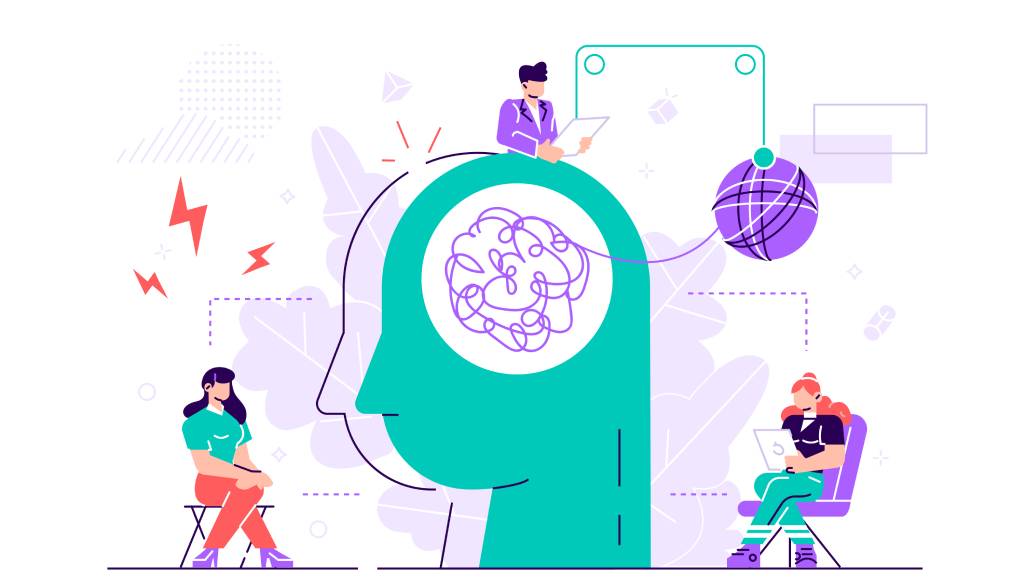Whenever we use the term healthy, we do it in terms of our physical health and use parameters of physical health to define a healthy person. However, “healthy” comprises a state of physical as well as mental, social and emotional well-being. Mental health issues can be extremely stressful for the people who have them. At the same time, these problems can have a wider effect on society as a whole, especially when they go untreated or treatment is delayed. When a person is not able to maintain a sound emotional state of mind, different mental health services can be helpful. Psychotherapists in India suggest that when allowed to intervene in a timely manner, mental health services can help lower health costs and free up limited resources. Studies by best therapists in India indicate that people use medical services 90 percent less frequently after receiving appropriate mental health care. Mental health services also reduce the risk of chronic diseases related to stress, anxiety and substance abuse. In different age groups, the following symptoms might be signs of an underlying mental health condition:
However, if there are severe problems such as suicidal thoughts, tendencies of self-harm, hallucinations or delusions, immediate attention is required.
Different mental health services are helpful based on the nature and severity of the concerns. In case of acute and severe problems psychiatric medicines are beneficial. Often, a combination of pharmacotherapy and psychotherapy is most beneficial, as recommended by the best therapists in India. Psychotherapy helps the clients with certain techniques that help them to cope up with the problems in a much more adaptive and healthier manner. Different forms of psychotherapy include:
Cognitive Therapies
Cognitive therapies focus on beliefs and thought patterns that may be faulty and how to change them. By talking about the negative behaviours and feelings, the individuals are able to change their outcome. These therapies also challenge certain dysfunctional assumptions and help individuals form constructive beliefs through a process known as “cognitive restructuring”.
Humanistic Approaches
These approaches focus on a person’s personal growth with emotional reconstruction. The assumption is that the clients are blocking their own natural growth potential and, as a consequence, have become self-destructive. Rogers’ client-centred therapy focuses on one’s own instinct to become healthy and productive. Some of the techniques include:
- Active listening
- Genuineness
- Unconditional positive regard
- Empathy
Relationship And Family Therapies
These therapies include family therapies and marital therapies, which involve either the entire family or couples to help them with their issues and learn effective ways to communicate.
Mindfulness Based Therapies
These therapies promote the practice as an important part of good physical and mental health. Mindfulness-based stress reduction, mindfulness-based cognitive therapy (MBCT), dialectical behavior therapy (DBT), and acceptance and commitment therapy (ACT) are some mindfulness-based interventions currently utilized in therapy. Mindfulness is the state in which one becomes more aware of one’s physical, mental, and emotional condition in the present moment, without becoming judgmental. Individuals may be able to pay attention to a variety of experiences, such as bodily sensations, cognitions, and feelings, and accept them without being influenced by them. Mindfulness practices are believed to be able to help people better control their thoughts, rather than be controlled by them.
Trauma Focused Therapy
It helps people to overcome the intense and overwhelming effects of a traumatic experience. Trauma often leads to significant negative impacts, such as anxiety, depression, negative coping behaviours or confusion. It helps individuals by psychoeducating about the trauma, helping them to identify triggers, teaching relaxation and emotional regulation skills and developing healthy coping behaviours.
In conclusion, it can be said that mental health services form an integral part of our lives. We must prioritize mental health and having an understanding of these services would enable us to seek the appropriate help, should we feel the need at any stage of our lives.

